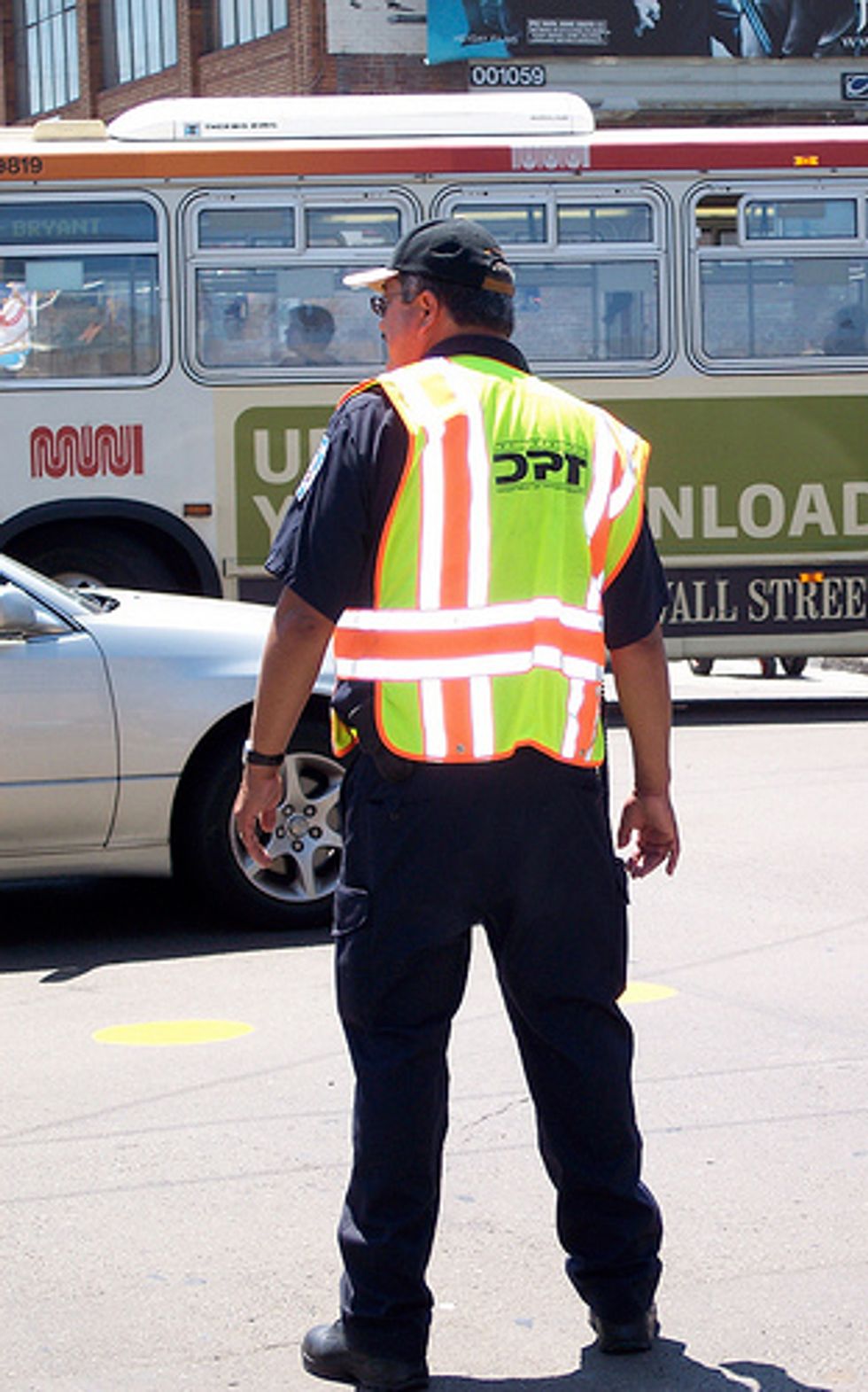Just before lunch, our parking guru David LaBua challenged your knowledge of how the SFMTA can punish you and how they can't, so you can be vigilant in light of their new plan to make $100 million off city drivers this fiscal year.
Which of these is not a real parking law for which you can be ticketed?
A) The 72-hour law
B) The 3% law
C) The 18 inch law
D) The 100 foot law
E) The 4 hubcap law
F) The 1.72 degree law
Answer: E) There is no law called the 4 hubcap law
Says David: The Deputy Director of parking enforcement for the San Francisco Municipal Transportation Agency said earlier this week that parking citation revenues are down this fiscal year, so parking enforcement officers will be issuing more citations to make up for the shortfall. Since that fateful day of August 21, 1947 parking meters and tickets were seen as a cash cow, and in essence are a tax. But no public official has ever stated that. It was actually refreshing to hear someone tell the truth and to not see the SFMTA do the old political two-step. So, yes the cat is out of the bag, San Francisco needs to give out 2 million-plus parking tickets a year, and make $100 million dollars from citations in order to keep its budget balanced, and the "parking taxes" will be increased.
The Deputy Director then outlined the SFMTA plan to generate more revenue:
- The biggest and most effective change could start as early as next month for the most cited parking violation- street sweeping. Cameras will be mounted on street sweeping vehicles to capture your license plate number if you are parked illegally on street sweeping day, resulting in your receiving a citation by mail.
- Soon, parking at broken parking meters could be limited to 2 hours max. This is not such a big deal because the old law stated that you could park at a broken meter only for the meter’s max time limit. This rule was implemented for one reason that I can see: Some of the new smart meters have no time limit, so under the old rule, if one of these meters was broken, then you could park there for free, forever. People were outraged last month when the Board of Supervisors were considering making it illegal to park at a broken meter at all. They are still deciding what they will be, but it looks like they will settle on 2 hours. Be careful though, this is the proposed maximum limit, not a blanket rule. This means that at a one-hour meter that is broken, you can only park there for one hour.
- And while we’re at it, also remember, the traffic code states that you may only park at a functioning meter for the time limit posted. So, if you have been parked for more than 2 hours at a 2-hour meter, even though you’ve replenished it with fresh quarters for the second 2 hours, you can be cited for overstaying your welcome.
- Shorter grace periods for tow-away zones will be implemented. The grace period in the old days was 10 minutes. The new grace period is 5 minutes.
- Traffic officers will be handing out more gridlock citations during rush hour. No complaints here regarding this one. However, this should not be enforced when you get bamboozled by someone turning right on red, as you are crossing the intersection, cutting ahead of you, and leaving you stuck in the middle.
It’s time to find other ways to balance the MUNI budget. It’s risky to depend on money that has such a big variable. Theoretically, it is possible that no parking tickets could be given out, if everyone paid attention and knew the rules I believe that there is a shortfall in traffic citation revenue because the fines have become so ridiculous that people are actually paying more attention to the parking rules. Parking laws such as the 72-hour law, the 100-foot law, and the 3% law are becoming better known, less frequently cited, and ticketing cars isn’t like shooting fish in a barrel for DPT officers anymore.
The City was actually making more money 5 years ago when the parking fines were less costly because a ticket didn’t hurt as much as it does now. I believe that the critical mass of revenue and of frustration has been reached. If San Francisco continues to push the envelope and shake every last nickel from drivers’ pockets (such as charging for parking on Sunday), at some point, a tipping point will be reached, and perhaps we will see SF drivers take a page out of the bicyclists’ handbook and start some critical mass protesting of their own.
To see a running total of San Francisco’s parking citation revenue and to learn how to never get a parking ticket again, click here.
Know your parking laws (see above):
A)The 72-hour law states that any vehicle may remain parked for only a 72-hour period. After that time, it may be towed.
B)The 3% law says you must curb your wheels (properly) on any road that is 3% grade or greater, or you will be cited.
C)The 18-inch law means the inside wheels of your vehicle may not be more than 18 inches away from the curb.
D)The 100-foot law states that all parking signs are enforceable for 100 feet, but only 100 feet.
F)The 1.72-degree law is the same as B. A 3% grade means that the street is at a 1.72 degree slope.





















